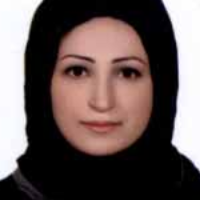A Study of Discourse Space in the ofol Play by Akbar Radi, Based on the Theory of Conceptual Metaphors
Discourse space is a key element in conveying concepts in a play text. This article will look forward to answer this question how metaphors could be used in discourse about social and historical problems and their usage in play texts as a linguistic form. Hence we will use George Lakoff and Zoltan Kovecses views and then we will show how metaphors which are the building blocks of Language and Culture, are used to help form the discourse space. Lakoff and Kovecses look to discourse space, as a result of interaction between mind, body and type of the culture that interactors live within. Hence in a play text, we will face a complex interaction between writer’s / audience mind in one hand, and experience and physical and mental abstraction in another hand. Also the context where the play text is formed in, and the context where it is comprehend, are key elements. This article will show how by using metaphors and cultural and historical contexts, Akbar Radi has managed to create a complex and deductive discourse space in Ofol text. So in first level, we are facing with linguistic metaphors which act in text structures (dialogues, atmospheres and characterizations), and in higher level, we are facing with conceptual metaphors which act by making connection between play text origination and audience experiences that merge contextual discourse space into audience mind space which will result in a new discourse space.
-
Structuralism Analysis of Narrative Sequences in Iranian Folktales through Claude Bremond’s Theory (Study sample: The story of Jahan Afrooz by Begami’s Darab Nameh)
Ali Zare, Mohamadjafar Yosefiyan Kenari *
Journal of Narrative Studies, -
A Comparative Study of Discursive Space in ritual structure and forms of the Cinematic based on Gilbert Doran's theory of Mythocritique in Lament of the Snow
Fereshteh Paidar Nobakht *, Minoo Khany
Interdisciplinary Studies on Literature, Arts and Humanities, -
Cinematic reality and the relationship between idea and aesthetic form in Jacques Rancière's thought Case study: The wind will Carry us
, MohammadJafar Yousefian Kenari *
Honar-Ha-Ye-Ziba: Honar-Ha-Ye Mosighi Va Namayeshi,



